hashmap遍历时用map.remove方法为什么会报错?
笔者最近在调试项目bug的时候,遇到了一个很奇怪的bug,就是在对hashmap集合进行遍历的时候,同时做了remove操作,这个操作最后导致抛出了java.util.ConcurrentModificationException的错误。
带着疑惑,下面参考着源码,分析问题的原因。
首先,重现问题,构造一个map并往里面加元素:
private static HashMap<Integer, String> map = new HashMap<Integer, String>();;
public static void main(String[] args) {
for(int i = 0; i < 10; i++){
map.put(i, "value" + i);
}
}
复制代码
然后移除一些元素,此时就会报java.util.ConcurrentModificationException错误
for(Map.Entry<Integer, String> entry : map.entrySet()){
Integer key = entry.getKey();
if(key % 2 == 0){
System.out.println("To delete key " + key);
map.remove(key);
System.out.println("The key " + + key + " was deleted");
}
复制代码
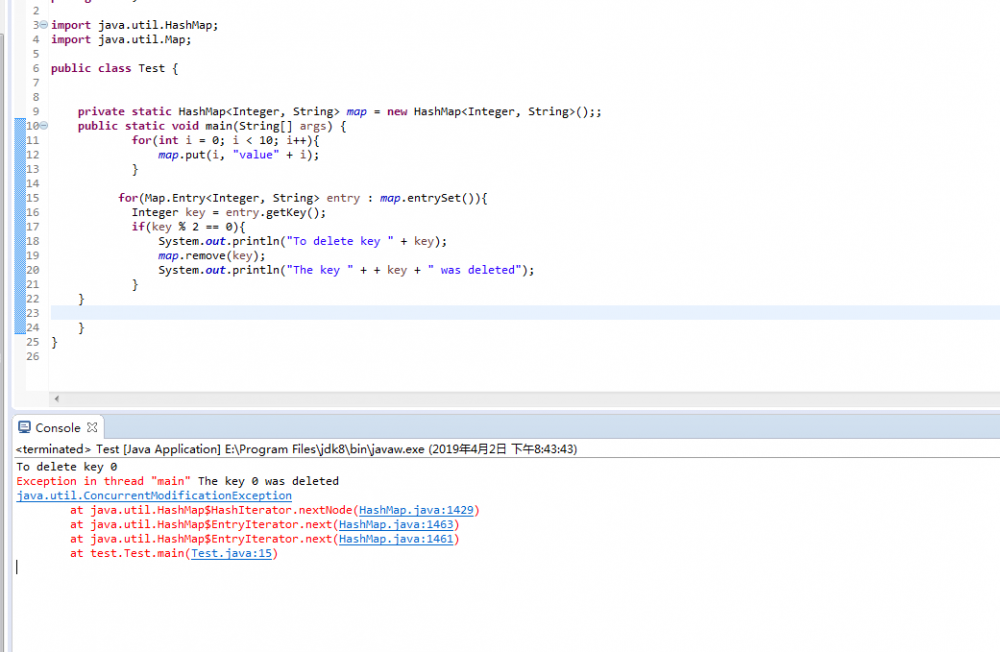
分析问题
从报错中可以看出,HashMap$HashIterator.nextNode这个方法有代码错误了,点进去看,大概知道HashMap.this.modCount != this.expectedModCount 成立
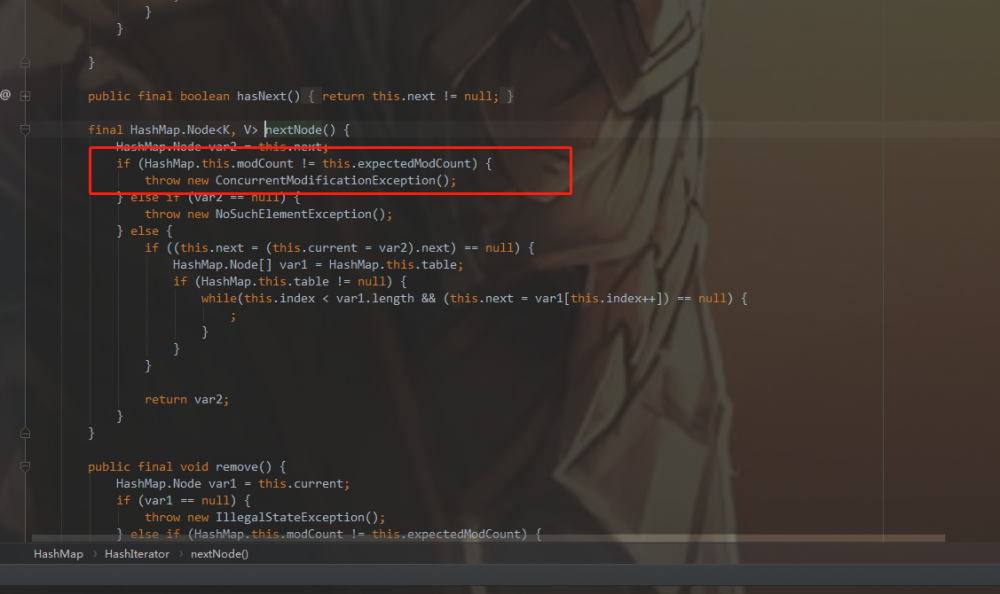
再看一下hashmap的remove操作是做了什么:
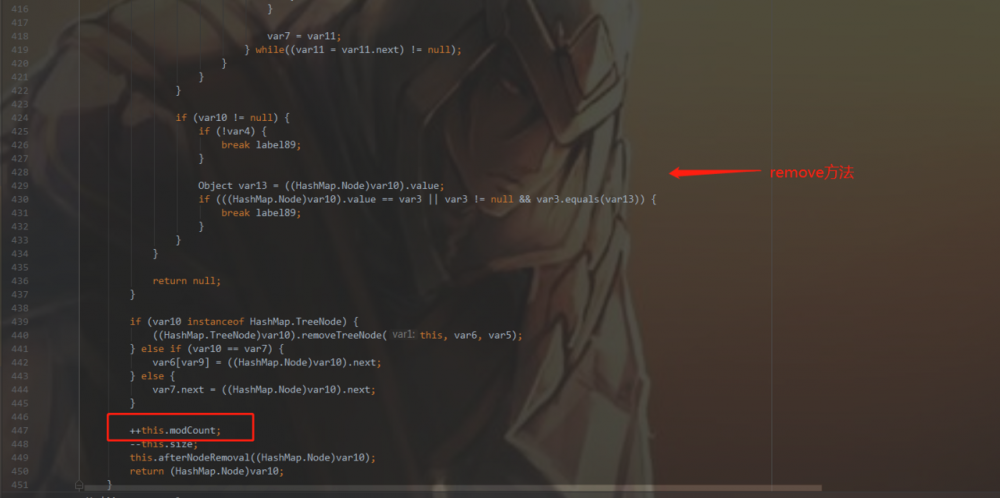
这里对modCount进行了自增操作,表示操作动作+1。再看modCount和expectedModCount是什么东西
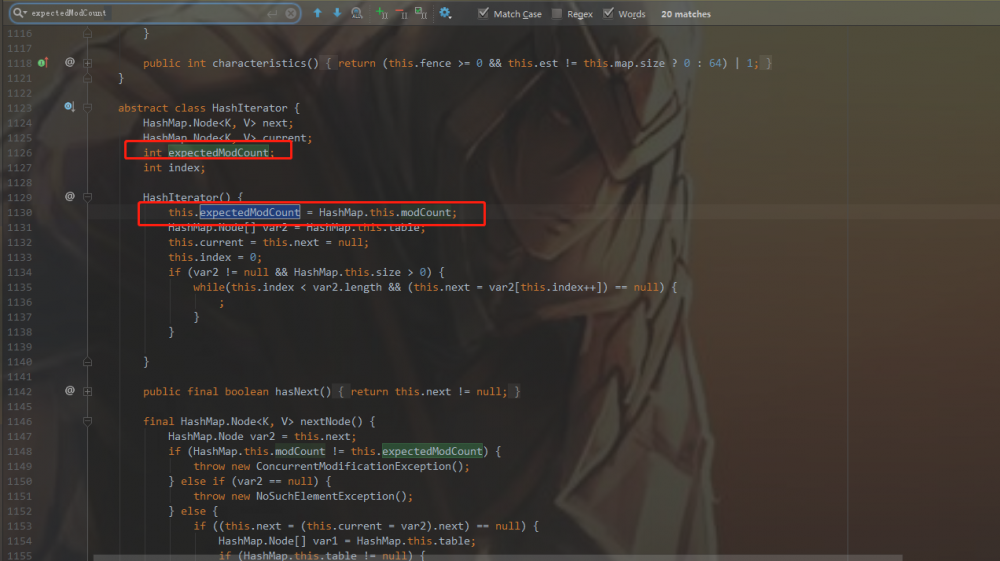
问题原因
可以看出迭代器初始化的时候就对modCount和expectedModCount进行同步。
到此,可以看出报错的原因:
- hashmap里维护了一个modCount变量,迭代器里维护了一个expectedModCount变量,一开始两者是一样的。
- 每次进行hashmap.remove操作的时候就会对modCount+1,此时迭代器里的expectedModCount还是之前的值。
- 在下一次对迭代器进行next()调用时,判断是否HashMap.this.modCount != this.expectedModCount,如果是则抛出异常。
解决问题
那什么情况下在遍历的时候可以删除map里面的元素呢?看下迭代器提供的remove方法:
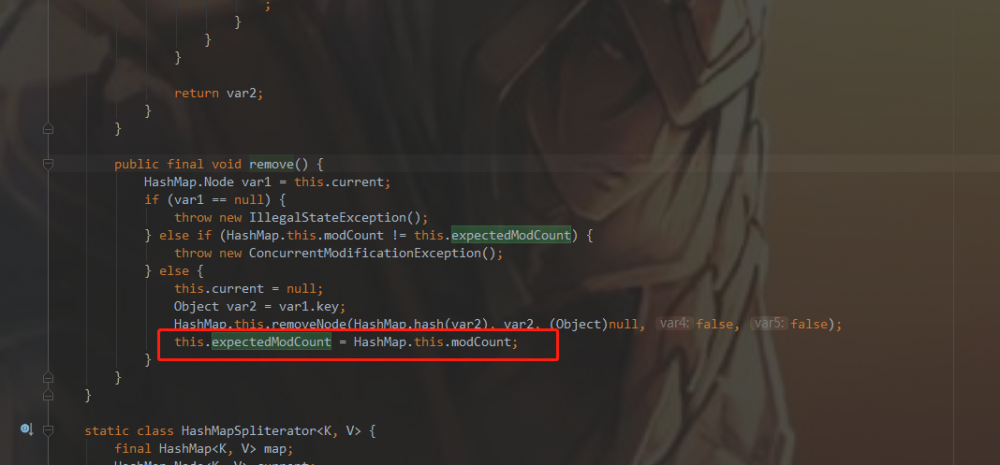
可以看出迭代器里remove了一个元素之后会对expectedModCount重新赋值,这样再次遍历的时候就不会报错了。所以之前的代码可以改成如下写法,直接调用迭代器的remove方法。
Iterator<Map.Entry<Integer, String>> it = map.entrySet().iterator();
while(it.hasNext()){
Map.Entry<Integer, String> entry = it.next();
Integer key = entry.getKey();
if(key % 2 == 0){
System.out.println("To delete key " + key);
it.remove();
System.out.println("The key " + + key + " was deleted");
}
}
复制代码
正文到此结束
热门推荐
相关文章
Loading...











![[HBLOG]公众号](https://www.liuhaihua.cn/img/qrcode_gzh.jpg)

